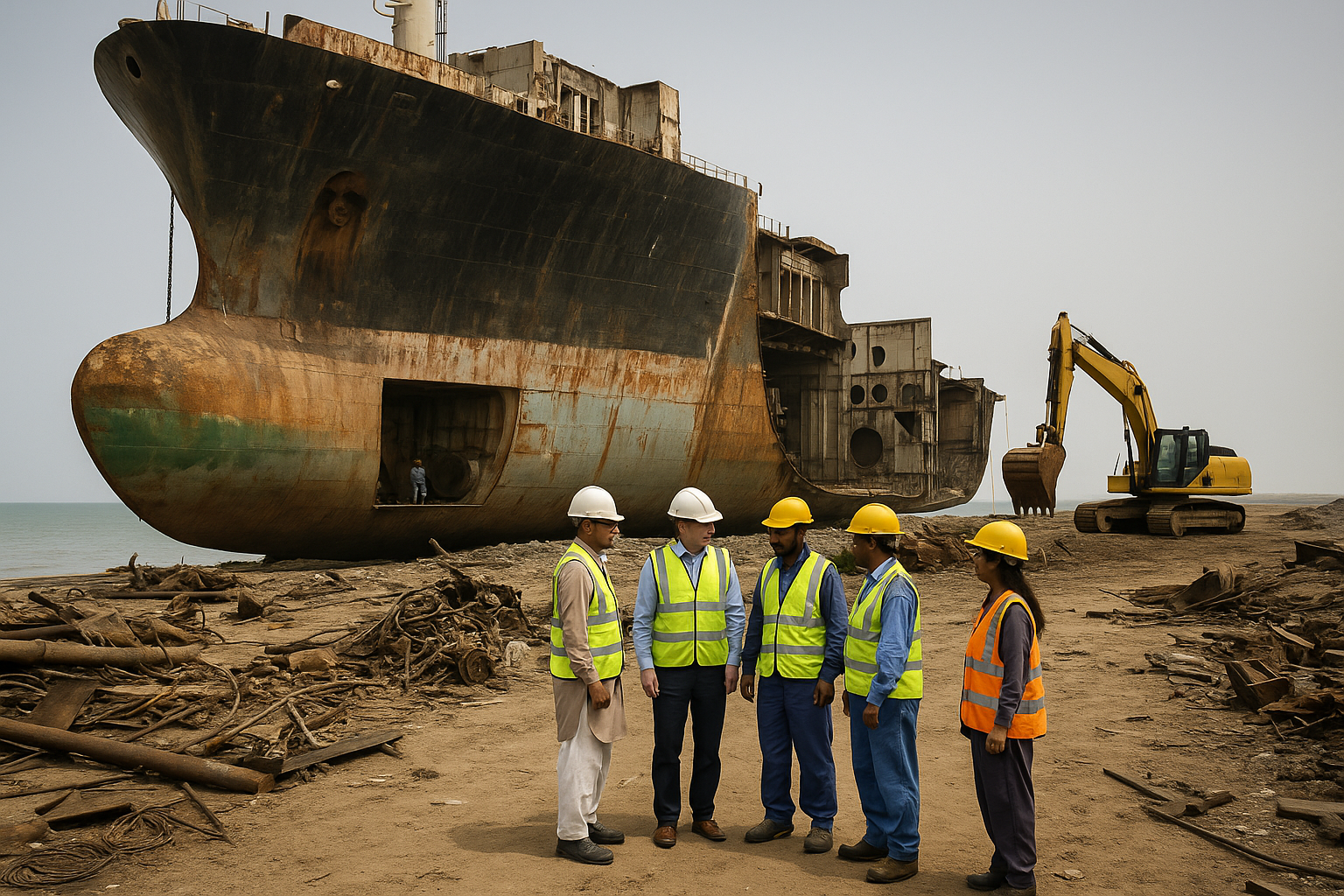Pakistan Advances Greener, Safer Ship Recycling with Global Standards Alignment
“The management of hazardous waste is not just an environmental obligation—it is a labour rights imperative,” said Geir Thomas Tonstol, ILO Country Director for Pakistan.

- Country:
- Pakistan
In a significant push to modernize and humanize its ship recycling industry, Pakistan is enhancing its commitment to worker safety, hazardous waste management, and environmental sustainability through alignment with international labour and environmental standards. This shift was marked by a recent two-day workshop held in Karachi on 28–29 May 2025, where stakeholders from across sectors gathered to deepen their understanding of global conventions and practical reforms for the Gadani shipbreaking yard, one of the world’s largest ship recycling hubs.
The workshop, part of the Safe and Environmentally Sound Ship Recycling and Decent Work (SENSREC-DW) in Pakistan project, was organized by the International Labour Organization (ILO) in collaboration with the International Maritime Organization (IMO) and the Ministry of Maritime Affairs (MoMA). Funded by the Norwegian Ministry of Foreign Affairs, the event served as a platform for policy dialogue, capacity building, and site-level evaluation.
Strengthening Compliance with International Standards
Participants examined critical frameworks, including:
-
The Hong Kong International Convention for the Safe and Environmentally Sound Recycling of Ships (Hong Kong Convention)
-
ILO Conventions on Chemical Safety and Occupational Safety and Health
-
National and provincial legislation concerning hazardous waste management, worker protection, and environmental compliance
These instruments lay the foundation for elevating Pakistan’s shipbreaking industry to globally recognized safety and sustainability standards, protecting both workers and the surrounding ecosystem.
“The management of hazardous waste is not just an environmental obligation—it is a labour rights imperative,” said Geir Thomas Tonstol, ILO Country Director for Pakistan. “Through this project, we are working to strengthen safety standards and ensure decent working conditions for all.”
Multi-Stakeholder Collaboration for Sustainable Change
The workshop brought together a diverse cross-section of participants, including:
-
Officials from the Ministry of Overseas Pakistanis and Human Resource Development, Ministry of Climate Change and Environmental Coordination, and the Balochistan Development Authority
-
Representatives from the Pakistan Ship Breakers Association
-
Labour unions, environmental NGOs, and civil society organizations
-
International experts from the ILO and IMO
These stakeholders reiterated their commitment to collaborative governance, recognizing that reforms require cross-sector coordination and the integration of environmental and occupational health frameworks into industry practices.
On-the-Ground Learning at Gadani Shipbreaking Yard
As part of the workshop, participants conducted a site visit to the Gadani ship recycling yard, where they observed current practices firsthand. The visit highlighted challenges in implementing safe dismantling protocols, managing hazardous materials, and ensuring proper worker protections, particularly around personal protective equipment (PPE), training, and emergency response preparedness.
Participants reflected on how the shared knowledge could be practically applied to address deficiencies and support gradual improvements in safety infrastructure, monitoring systems, and worker welfare.
SENSREC-DW: Supporting Decent Work and Environmental Stewardship
The SENSREC-DW project, launched as part of the ILO’s flagship Safety + Health for All programme, is designed to:
-
Improve occupational safety and health (OSH) in ship recycling yards
-
Enhance hazardous waste handling and disposal
-
Support the legal and institutional alignment of Pakistan’s practices with international conventions
-
Foster social dialogue among government agencies, employers, and workers
-
Advance the recognition of a safe and healthy work environment as a fundamental right
The project reflects a growing global consensus that environmental and labour issues in ship recycling are interconnected and must be addressed through holistic, sustainable solutions.
Looking Ahead: Towards Sustainable Industry Transformation
Pakistan's ship recycling sector employs thousands of workers, many of whom face difficult and often dangerous working conditions. As international scrutiny of the industry increases and environmental regulations tighten globally, the country has a window of opportunity to lead by example in South Asia by adopting greener, safer shipbreaking practices.
With continued technical support from international partners and a clear roadmap aligned with global conventions, Pakistan is poised to enhance industry resilience, protect worker rights, and reduce environmental risks—paving the way for a more sustainable maritime economy.










